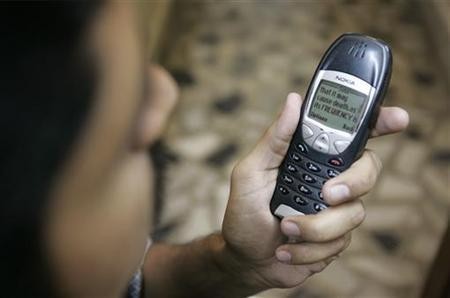
Text messaging, better known as Short Message Service (SMS), celebrates its 20th birthday on Monday.
Neil Papworth, a 22-year-old British engineer, sent the first telenote message 'Merry Christmas' from his computer to technical director Richard Jarvis's Orbitel 901 phone on Decmber 3, 1992.The technician of Vodafone's Newbury HQ in south-east England did not realize then that his telenote would turn out to be a catalyst of communication. In 2012, as SMS celebrates its 20th anniversary, text messaging has surpassed all conventional means of communication, and at the same time, believed by many to have reached its point of saturation.
"Back then I had no idea - I was just doing a day's testing. It wasn't until the 10th anniversary that I realised and thought, 'Wow, that was a big thing,'" SkyNews quoted Papworth saying.
"And here we are another 10 years later and text messaging has gone on to even bigger and better things now."
SMS is one of the most common forms of communication across the world. Globally, 4 million people use the text messaging service to communicate with each other. It obliterated the conventional style of writing and introduced symbols and abbreviated form with shortened words to express thoughts. Political scams and celebrity sex scandals reported, of late, could not distance themselves from the disastrous SMS evidences. Texting transformed many lives from good to bad and vice versa. No one is likely to forget the text messages sent by David Beckham to his personal assistant Rebecca Loos, which almost killed his marriage.
The figures released by communications regulator Ofcom show that an average British person sends 50 SMSs per week. More than 150 million SMSs were sent in the Uk in the last year.
But in this modern era of smartphones and tweets, the humble text messaging seems to be losing its charm. Recent figures show that SMS may be on its way out. The volume of text sent in the UK in the first half of 2012 has dropped from 39.7 billion to 38.5 billion. More or less the same pattern has been seen in the US as well.
"For the first time in the history of mobile phones, SMS volumes are showing signs of decline," The Independent quoted James Thickett, Ofcom's director of research, saying.
"The availability of a wider range of communications tools, like instant messaging and social networking sites, means people might be sending fewer SMS messages, but they are communicating electronically more than ever before," Thickett added.
















